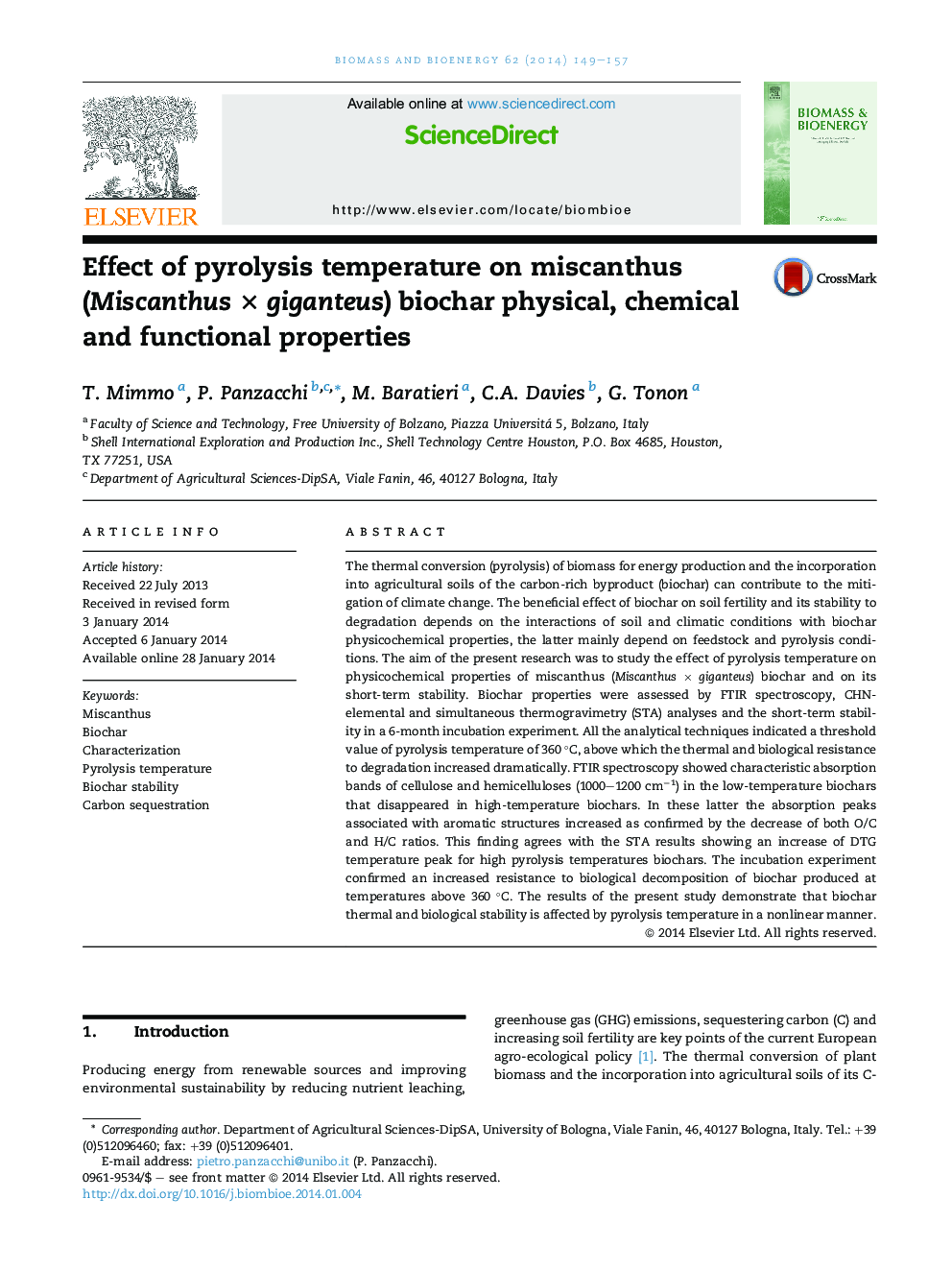| Article ID | Journal | Published Year | Pages | File Type |
|---|---|---|---|---|
| 7064949 | Biomass and Bioenergy | 2014 | 9 Pages |
Abstract
The thermal conversion (pyrolysis) of biomass for energy production and the incorporation into agricultural soils of the carbon-rich byproduct (biochar) can contribute to the mitigation of climate change. The beneficial effect of biochar on soil fertility and its stability to degradation depends on the interactions of soil and climatic conditions with biochar physicochemical properties, the latter mainly depend on feedstock and pyrolysis conditions. The aim of the present research was to study the effect of pyrolysis temperature on physicochemical properties of miscanthus (Miscanthus Ã giganteus) biochar and on its short-term stability. Biochar properties were assessed by FTIR spectroscopy, CHN-elemental and simultaneous thermogravimetry (STA) analyses and the short-term stability in a 6-month incubation experiment. All the analytical techniques indicated a threshold value of pyrolysis temperature of 360 °C, above which the thermal and biological resistance to degradation increased dramatically. FTIR spectroscopy showed characteristic absorption bands of cellulose and hemicelluloses (1000-1200 cmâ1) in the low-temperature biochars that disappeared in high-temperature biochars. In these latter the absorption peaks associated with aromatic structures increased as confirmed by the decrease of both O/C and H/C ratios. This finding agrees with the STA results showing an increase of DTG temperature peak for high pyrolysis temperatures biochars. The incubation experiment confirmed an increased resistance to biological decomposition of biochar produced at temperatures above 360 °C. The results of the present study demonstrate that biochar thermal and biological stability is affected by pyrolysis temperature in a nonlinear manner.
Related Topics
Physical Sciences and Engineering
Chemical Engineering
Process Chemistry and Technology
Authors
T. Mimmo, P. Panzacchi, M. Baratieri, C.A. Davies, G. Tonon,
